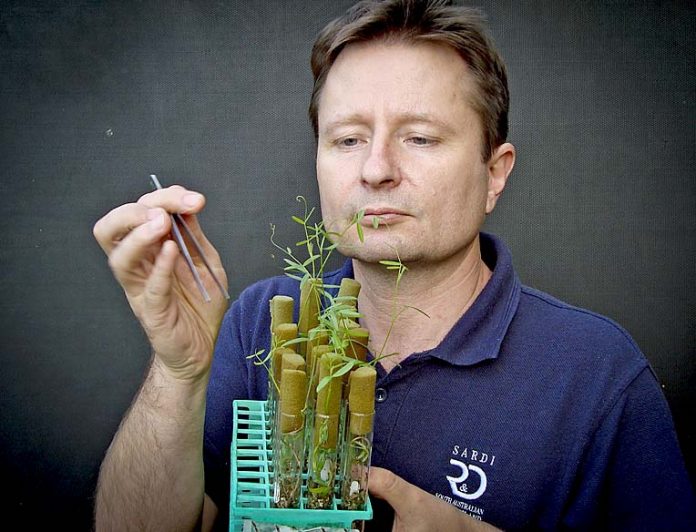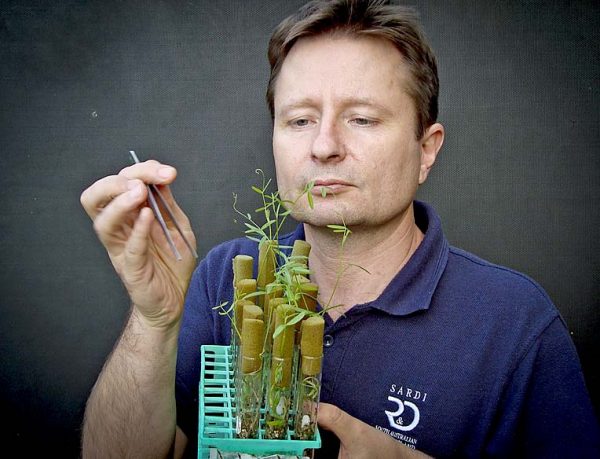

NEW research is offering hope to grain growers who have been limited in their ability to successfully grow pulse crops on acidic soils in the southern cropping region.
New strains of rhizobia with improved acid tolerance have shown promise in field trials, lifting the prospects of commercialisation and a subsequent expansion of faba bean and lentil crops into areas with acidic soils.
South Australian Research and Development Institute (SARDI) research leader Ross Ballard said field trials over the past three years have demonstrated the effectiveness of the new strains in nodulating faba beans and lentils on acidic soils.
Mr Ballard says the new strains of rhizobia have resulted in a dramatic improvement in nodulation compared to commercial strains when applied at recommended rates of inoculation in acid conditions.
According to Mr Ballard, increases in faba bean nodulation of about 30pc have been consistently measured with the new strains where soil pH is less than 5.0 when measured in calcium chloride.
“The new strains are improving nodulation and ultimately that results in better crop vigour early in the growing season, as well as improved nitrogen fixation and yield,” he said.
Further evaluation of the strains will be undertaken this year, with a new faba bean strain potentially available for commercial use in 2022.







